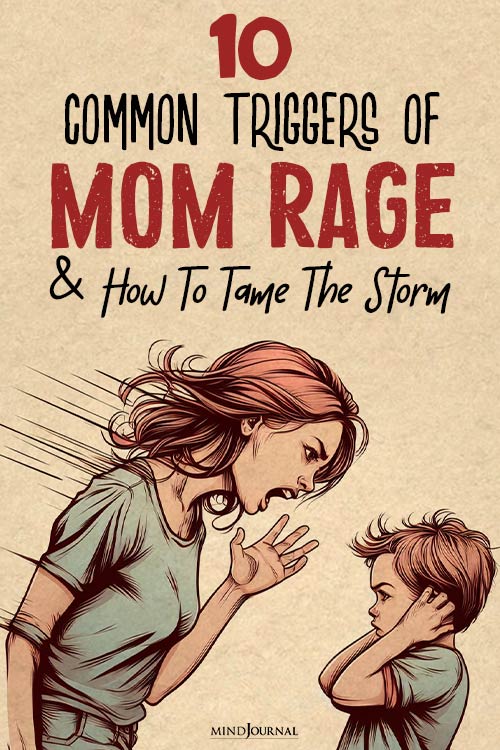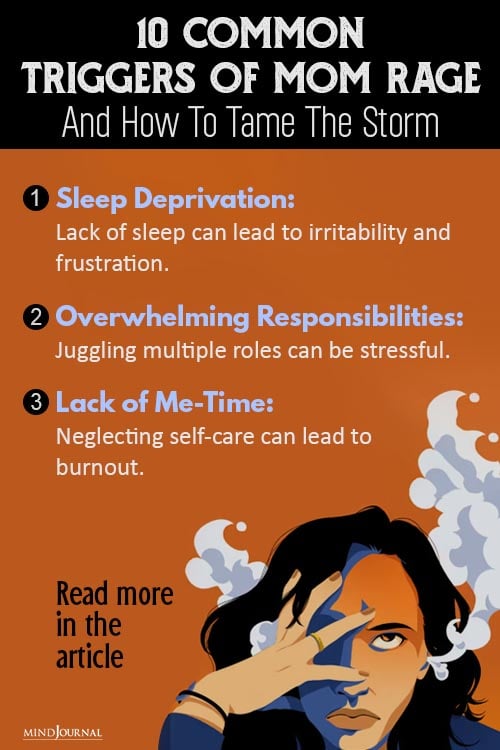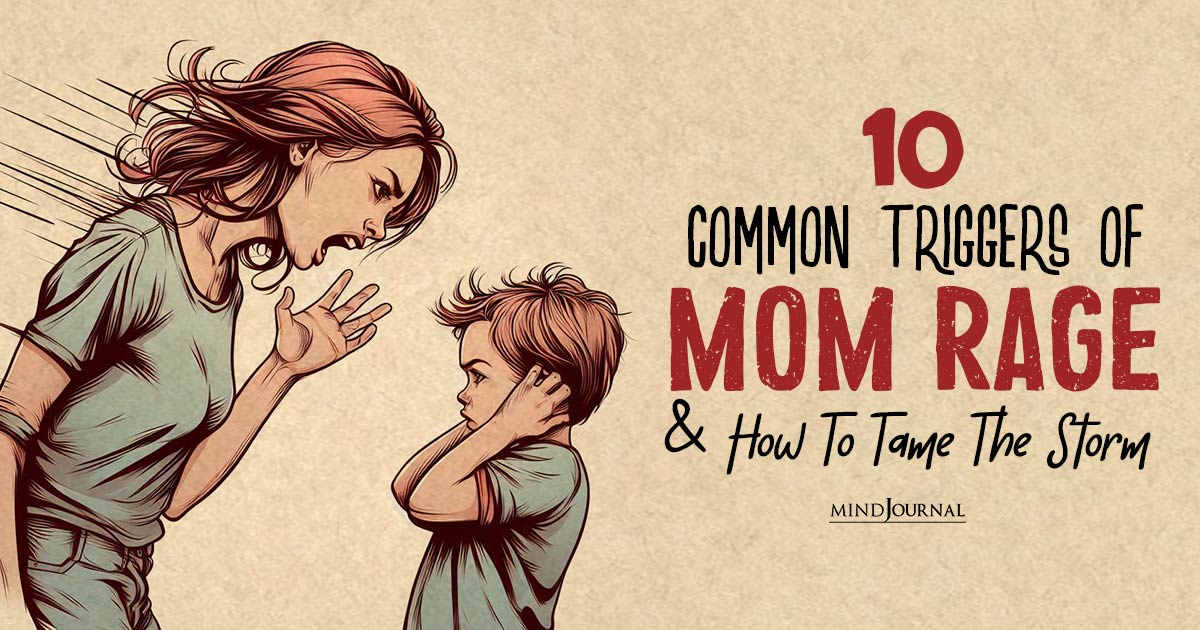Ever wonder why your mom seems to be on the verge of fury more often than not? It’s not intentional, but there are everyday triggers of mom rage that might be lurking beneath the surface. Let’s uncover some of the common reasons fueling her occasional bursts of anger.
Most mothers go through and it often occurs suddenly. If you learn what is mom rage and what ignites it, you can handle these situations at home better!
What Is Mom Rage?
“Mom rage” refers to the strong emotions of anger, irritation, and stress that women experience when caring for their children. It can manifest itself in various ways, such as being impatient, shouting, or simply snapping at everyone and anyone.
The term ‘mother rage’ has been coined to describe challenges some moms face while carrying out their duties as mothers
Take a look at some of the mom rage symptoms and signs to know if you’re experiencing it:
- Feeling powerless and unable to manage one’s emotions.
- Excessive frustration all the time.
- Losing patience quickly, especially for small problems.
- Tight muscles, clenched jaw, or headaches.
- Feelings of regret immediately after expressing anger.
- Constant negative thoughts regarding parenting.
- Insomnia or interrupted sleep patterns
- Feeling drained or exhausted.
Related: Raised By A Borderline Mother: Signs, Types, Effects, And How To Deal
Mom Rage Alarms: 10 Everyday Trigger Warnings
The expectations of motherhood can be daunting, and identifying what causes it is the first step toward conquering them. Let’s take a look at 10 common triggers and how to deal with Mother rage!
1. Sleep Deprivation:
Even the most patient mother can become a ticking time bomb of frustration after a night of continuous sleep disturbances.
2. Overwhelming Responsibilities:
A mother might grow furious when family or work responsibilities take priority over her personal needs. The never-ending to-do list may cause her to feel as if she is being buried alive with the weight of motherhood.
3. Lack of Me-Time:
Constant caregiving can leave little room for personal space. Some moms may experience a loss of their identity, leading to feelings of resentment and dissatisfaction.
4. Perfectionism:
Some perfectionist mothers struggle with giving up control as they want to do everything exactly as planned. When things don’t go according to them, they can get angry.
Related: Love Hate Relationship With Parents: 5 Painful Reasons
5. Toddler Tantrums:
Tantrums of toddlers can be concerning and a constant struggle for moms, making their patience and emotional strength wear out.
6. Sibling Fights:
The constant fighting and squabbles among siblings can create a chaotic environment at home, making it difficult for a mother to maintain peace and a feeling of order at home.
7. Lack of Support:
Constantly handling a family’s emotional needs without enough help might result in emotional fatigue. Moms may feel exhausted, making it difficult to cope and causing them to lash out at their children or other family members.
8. Unmet Expectations:
Most moms often have to juggle multiple tasks and obligations. And when the burden of the workload gets too much, unmet expectations about receiving help or having no me-time can lead to frustration.
9. Financial Stress:
Financial struggles at home can limit a mother’s ability to give her children the desired level of education, or comfort, leading to feelings of inadequacy.
10. Guilt:
Moms often hold themselves to high standards. When reality falls short of these expectations, shame, and frustration might set in.
How To Deal With Mom Rage?
Mom rage symptoms common among so many mothers, but if you can recognize what causes it and develop coping skills, your parenting journey will be much simpler.
- Take a moment to pause and focus on deep breaths. It will help to diffuse the tension.
- If things get overwhelming, don’t hesitate to collect your thoughts with a short break.
- Speak with your friends, family, or even other parents about your experiences to gain emotional support.
- Start by communicating the things that bother you rather than letting anger build up.
- Make sure you’re taking care of yourself. Being rested can help you handle parenting challenges easily.
Related: Nurturing The Inner Child: Healing The Mother Wound That Was Inflicted On You As A Child
Now that you know how to deal with mom rage, start by admitting your flaws, taking care of yourself, and always asking for help when needed.
Offer kindness, compassion, and laughter to guide you through these strange motherhood moments. Share what you think in the comments section below!











Leave a Reply